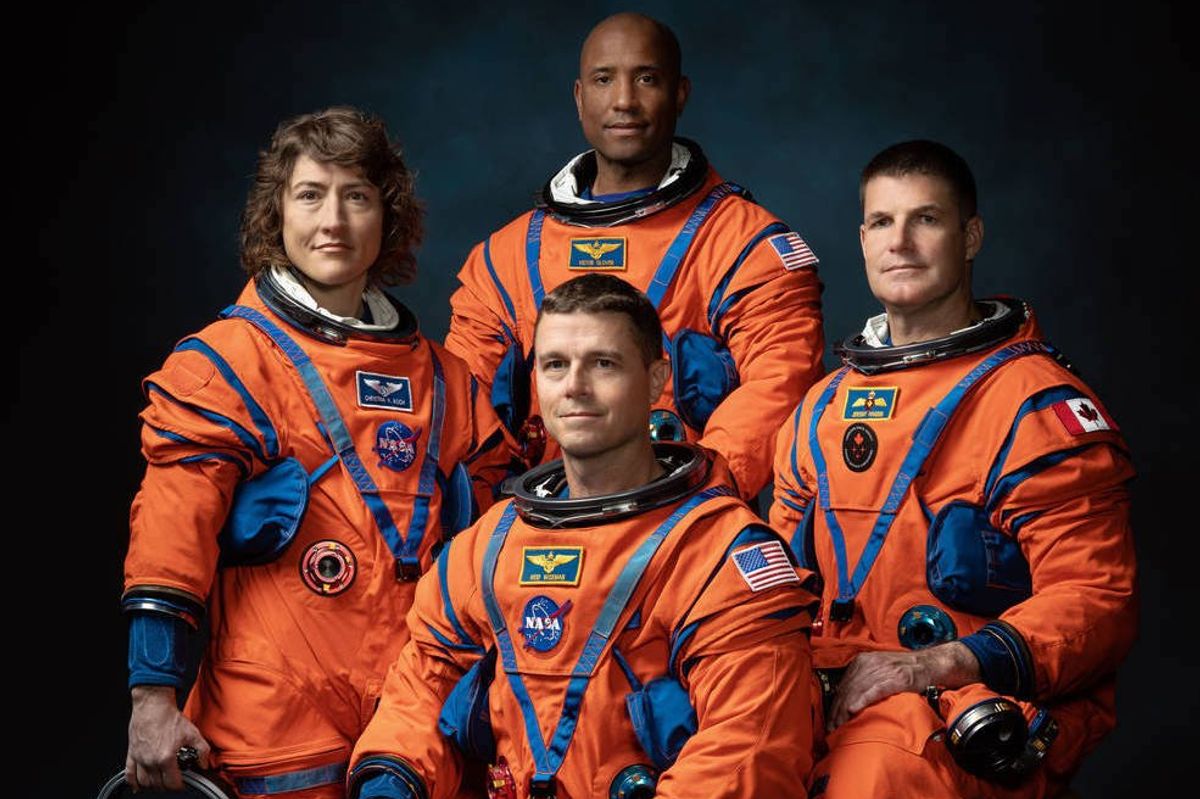NASA names four astronauts heading to the moon at Houston event
ready for liftoff
NASA and the Canadian Space Agency announced the four astronauts who will be onboard the Artemis II mission around the moon yesterday at an event at Ellington Field near NASA’s Johnson Space Center in Houston.
The 10-day mission is slated to put the first woman and the first person of color on the moon.
“For the first time in more than 50 years, these individuals – the Artemis II crew – will be the first humans to fly to the vicinity of the Moon. Among the crew are the first woman, first person of color, and first Canadian on a lunar mission, and all four astronauts will represent the best of humanity as they explore for the benefit of all,” says JSC Director Vanessa Wyche. “This mission paves the way for the expansion of human deep space exploration and presents new opportunities for scientific discoveries, commercial, industry and academic partnerships and the Artemis Generation.”
The crew assignments include:
- Commander Reid Wiseman, who has logged more than 165 days in space in two trips. He previously served as a flight engineer aboard the International Station and most recently served as chief of the Astronaut Office from December 2020 until November 2022.
- Pilot Victor Glover, who served as pilot on NASA’s SpaceX Crew-1 mission in 2021. This will be his second trip to space.
- Mission Specialist 1 Christina Hammock Koch, who set the record for longest single spaceflight by a woman with a total of 328 days in space and participated in the first all-female spacewalks. This will be her second flight into space.
- Mission Specialist 2 Jeremy Hansen, representing Canada. Hansen is a colonel in the Canadian Armed Forces and former fighter pilot and has served as Capcom in NASA's Mission Control Center at Johnson Space Center. He was the first Canadian to lead a NASA astronaut class. This will be his first flight into space.

“NASA astronauts Reid Wiseman, Victor Glover, and Christina Hammock Koch, and CSA astronaut Jeremy Hansen, each has their own story, but, together, they represent our creed: E pluribus unum – out of many, one," NASA Administrator Bill Nelson said. "Together, we are ushering in a new era of exploration for a new generation of star sailors and dreamers–the Artemis Generation.”
Artemis II is slated to build upon the uncrewed Artemis I mission that was completed in December. The crew will be NASA's first to aboard the agency's deep space rocket, the Space Launch System, and Orion spacecraft. They will test the spacecrafts' systems to ensure they operate as planned for humans in deep space before setting course for the moon.
NASA's Artemis program collaborates with commercial and international partners with the goal of establishing a long-term presence on the moon. Lessons learned from the missions are planned to be used to send the first astronauts to Mars.


 Apple doubles down on Houston with new production facility, training centerPhoto courtesy Apple.
Apple doubles down on Houston with new production facility, training centerPhoto courtesy Apple.

